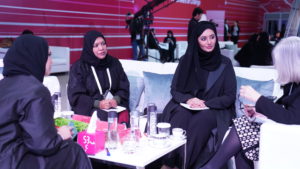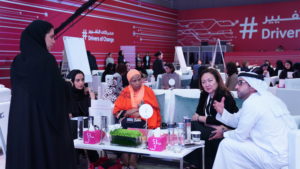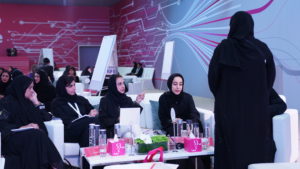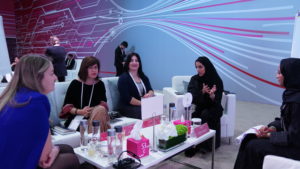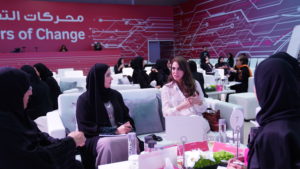WEEGS 2019 Calls For Legacy Of Inclusion To Create Supportive Ecosystem For Women In The Economy
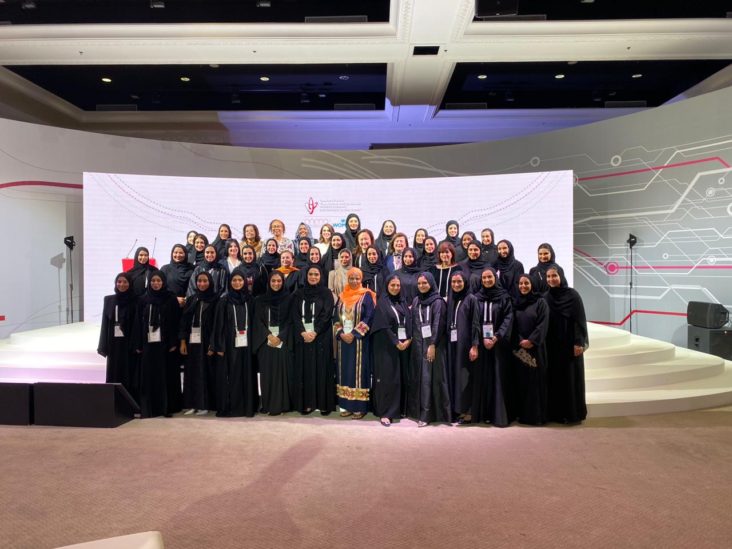
From altering mindsets, dismissing gender stereotypes and bias in the workplace to encouraging a cultural change, embedding flexible working conditions, promoting digital literacy and introducing reforms through appropriate legislations to close gender gaps – only a concerted effort by governments and civil society could play a foundational role in improving women’s economic inclusion. These were amongst the several recommendations brought to the table at a closed, all-women session held on the concluding day of the second edition of the Women’s Economic Empowerment Global Summit (WEEGS 2019) in Sharjah.
Titled ‘Drivers of Change: A supportive ecosystem for women in the economy’, the session brought together industry and thought leaders, policy makers, NGOs, academia and business heads in public and private entities, who talked about key factors supporting or impeding the inclusion of women in across market sectors.
Studies reveal that the share of female participation in the workforce in the MENA region has only seen an increase of 0.3 per cent between 2005 and 2015. Research also shows that the global GDP would receive a $28 trillion boost by 2025 simply by advancing women’s equity where they can play an identical role in labour markets to that of men.
It is against this backdrop that NAMA Women Advancement Establishment (NAMA), in line with its commitment to promoting women’s status economically and professionally, organised this session to encourage leading entities, decision makers and the public and private sector to initiate actions to create a more inclusive environment, both in the workplace and real economy.
“As the only male in the room, I am glad to be part of a session that strives to drive change and support women’s inclusion in all sectors,” said His Excellency Sheikh Fahim bin Sultan bin Khalid Al Qasimi, Executive Chairman of the Department of Government Relations (DGR) in Sharjah, in his keynote address at the event.
“I was raised by women – from my grandmother, the matriarch of the family, to my aunt, the first woman minister in the UAE, and my mother, who raised four sons independently,” he said. “It is women who have shaped who I am today, and it is a proud moment for me to be here when we are deliberating a legacy of inclusion that would have a far reaching impact on women’s future.”
In his address, Sheikh Fahim thanked HH Sheikha Jawaher bint Mohammed Al Qasimi, wife of the Ruler of Sharjah and Chairperson of NAMA, for taking the lead in promoting women’s sustainable and inclusive economic growth. “In the UAE, women form half of the parliament and about 66 per cent of the workforce in the country,” he said. “By adapting prevailing legislations, more women should be drawn into the economic sector too. The future economy will not progress in full strength without the presence of women across all sectors and leadership positions.”
Speaking at the event, Reem BinKaram, Director of NAMA, said, “We are not here to merely hold discussions. We are here to take the next step on the path of empowerment, a step that will bring more women into the fold, and lead us to the next level of success.”
“We are fully confident that the recommendations that came out of this session will translate into programmes and initiatives that will positively impact the reality of hundreds and thousands of women entrepreneurs and employees across the region, and globally,” she added.
Amongst the key challenges hindering women’s economic inclusivity that were addressed at the event included access to leadership positions, policy reforms, equitable access to diversified supply chains and work opportunities, and the need for a supportive work environment.
WEEGS 2019, organised by NAMA in collaboration with UN Women, concludes today (Wednesday) at Al Jawaher Reception and Convention Centre.


